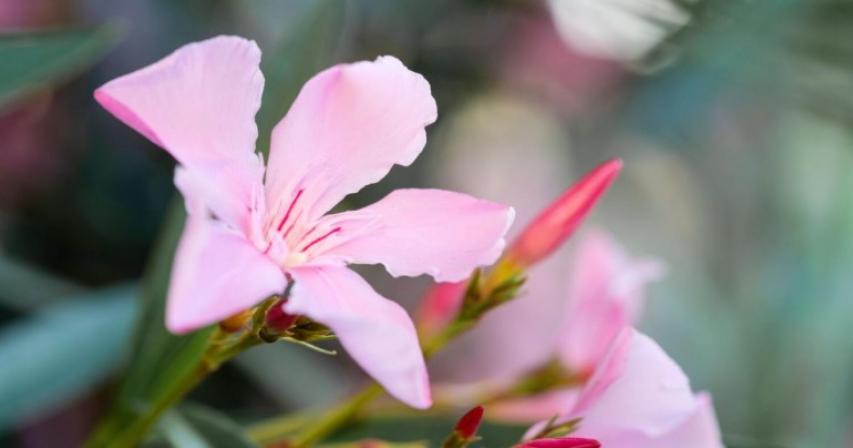Abu Dhabi bans toxic oleander plants; public warned

The decision has been made in order to safeguard the population in particular the young and the pets’, reported the authority.
Through An executive order issued, the government of Abu Dhabi prohibits the production, cultivation, propagation and trading of oleander plants.
This measure also corresponds with local and national legislation as well as seeks rather to minimize the risks and the subsequent poisoning of society members especially children and pets from chewing any parts of an edible look alike harmful plant, states the Abu Dhabi Agriculture and Food Safety Authority.
Oleander are perennial wild shrubs native to rocky valleys, which are usually brought along roadsides for decoration because of their green foliage and flowers.
On the other hand, every portion of this plant, including the leaves, the stems, the flowers, and even the seeds, possesses poisonous agents. Some of the toxins affect the cardiovascular system and a little amount of poison can cause case of nausea, vomiting, diarrhea, arrhythmia and even death in more extreme cases.
ADAFSA said citizens and residents should comply with the authorities, remove oleander plants properly, and report any violators. The authority also indicated that people should not touch or lick any plants that may look interesting.
If the public comes in contact with or in proximity of an unfamiliar plant, they must immediately call the Poison and Drug Information Services (PDIS) which is 800424 and operates on a 24 hours basis.
According to the latest news from the Department of Health – Abu Dhabi, oleander is now considered one of the poisonous plants in the region of UAE. It settles the question of toxicity level of oleander.
In much the same vein, the Ministry of Climate Change and Environment disallowed the planting of these flowering bushes in public parks, protected areas, schools and other areas and communities, and placed oleander out of the unification municipal guide of public afforestation targeting management.
Banned planting of the poisonous oleander is a preemptive blocking of dangers for the community, added Mouza Suhail Al Muhairi, ADAFSA Deputy Director General for Regulatory and Administrative Affairs. “Our devotion at ADAFSA is focused on safety and protection of the health of the public, especially children and animals.”
She pointed out that this penalization is within the framework of the larger policies of Abu Dhabi on making this resource richer and cultivating well-being of its people and maintaining the environment as well. “The presence of oleander is a serious threat and its elimination from urban zones will protect people and animals as well,” she added.
The recommendation also is in line with One Health, which embraces the philosophy that people's health is interconnected with that of animals and the environment. Al Muhairi underscored that achieving this objective of the ADAFSA will largely depend on the level of awareness and cooperation from the people.
“We call upon individuals to help in cut down this plant in a safe manner and respect the danger brought by toxic plants.”
In the words of Dr. Salem Al Kaabi, Director General of Operations Affairs at the Department of Municipalities and Transport, “The synergetic efforts with ADAFSA in respect of taking removal of oleander, which is in the scope of Department’s jurisdiction, from all the public sites, supporting private land ownership and facilities, complements this enormous effort in protecting the safety of the health and wellbeing of the community. ”






Comments